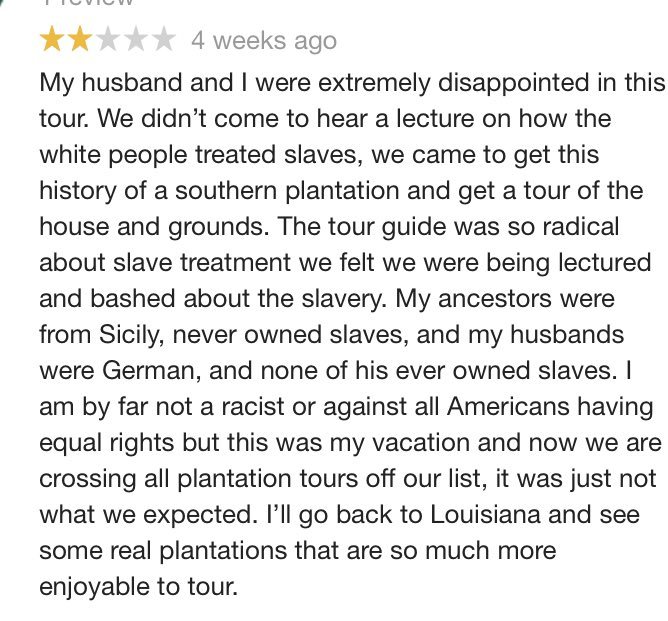
Dear Disgruntled White Plantation Visitors,
Hi! My name is Michael W. Twitty and I’m one of those interpreters who has watched you squirm or run away. I’m not a reenactor, because G-d forbid I reenact anything for the likes of you; but I am an interpreter, a modern person who is charged with educating you about the past. I take my job seriously because frankly you’re not the one I’m centering. I’m performing an act of devotion to my Ancestors. This is not about your comfort, it’s about honoring their story on it’s own terms in context.
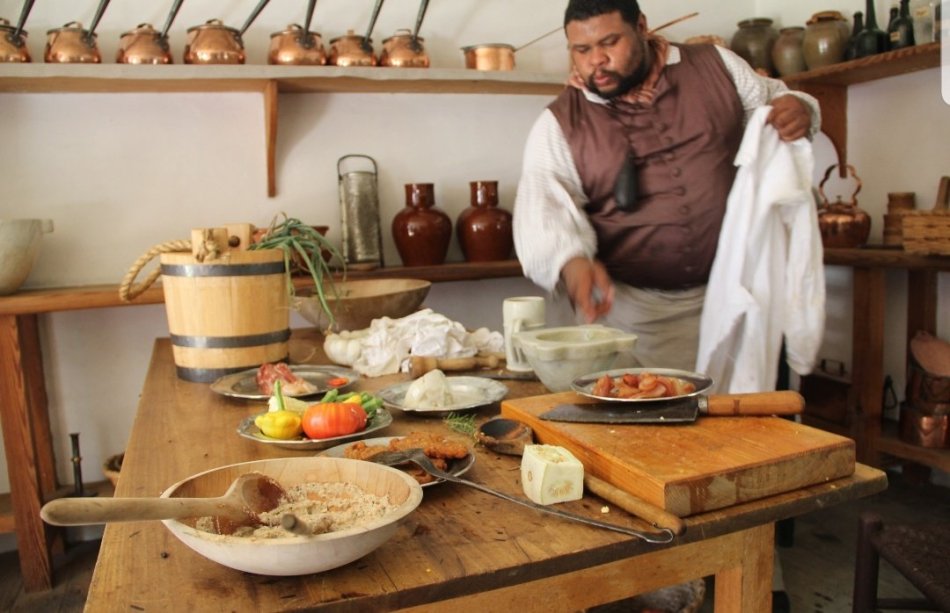
For over a decade I have been working towards my personal goal of being the first Black chef in 150 years to master the cooking traditions of my colonial and Antebellum ancestors. Five trips to six West African nations and more on the way, and having cooked in almost every former slaveholding state beneath the Mason-Dixon line, my work is constant, unrelenting mostly because I have to carve my way through a forest of stereotypes and misunderstandings to bring our heritage to life. I also just want to preserve the roots of our cooking before they’re gone.
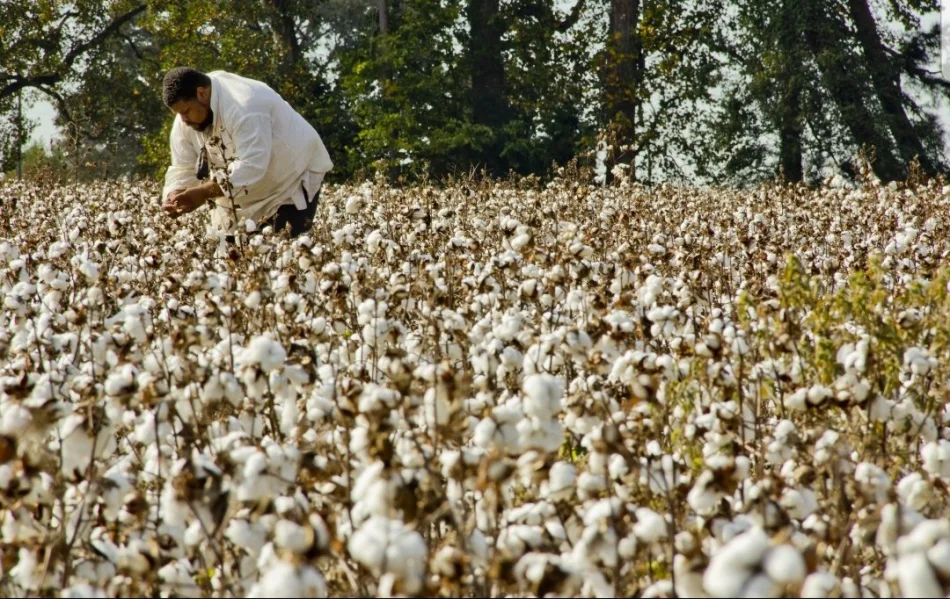
Because minds like yours created the “happy darky,” some people of color are ashamed of my work. Although I am none of the things they imagine me to be, I can understand why they are confused about what I (and many people like me) do. Once upon a time folks like yourselves wanted to have a national Mammy monument on the Mall, to remind us about the “proper” role we were meant to occupy and to praise our assumed loyalty. No, our forebears are the real greatest generation. With malice towards none they constantly took their strike at freedom and yet their heroism was obscured because you guessed it, white supremacy, had to have the final say.
Southern food is my vehicle for interpretation because it is not apolitical. It is also drenched in all the dreadful funkiness of the history it was created in. It’s not my job to comfort you. It’s not my job to assuage any guilt you may feel. That’s really none of my business. My job is to show you that my Ancestors, (and some of yours quiet as its kept…go get your DNA done…like right now…talking to you Louisiana and South Carolina…) resisted enslavement by maintaining links to what scholar Charles D. Joyner famously called a “culinary grammar” that contained whole narratives that reached into spirituality, health practices, linguistics, agricultural wisdom and environmental practices that constituted in the words of late historian William D. Piersen, “a resistance “too civilized to notice.” Want to read about it? Since you already know I’m a literate runaway from the American educational system, I wrote an award winning book called The Cooking Gene. Like Eddie Murphy said, “but buy my record first…”
(BTW it’s not a cookbook its the story of my family told through culinary history from Africa to America and from enslavement to freedom.)
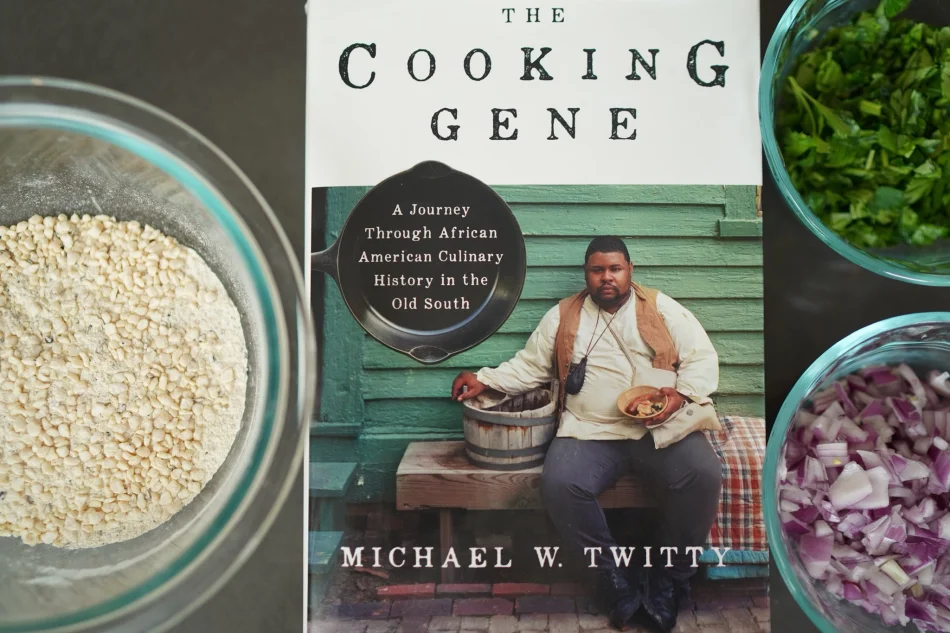
What’s most telling about the above quote and others is how blithely unaware you are about the real American struggle for freedom. When you’re in one of those hot ass kitchens watching me melt you are secretly telling yourself you’re glad you’re not me–or them. And yes, I’m about to go Designing Women/Julia Sugarbaker (in that pink hoop skirt) on you…so you might want to run now.
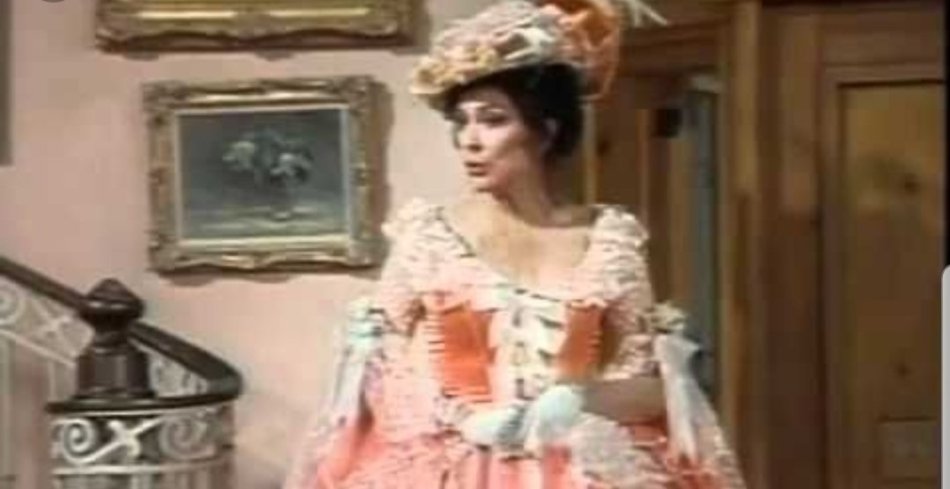
Thanks to a viral tweet the whole country sees what me and my colleagues have seen for quite some time. We get it. You want romance, Moonlight and Magnolias, big Greek Revival columns, prancing belles in crinoline, perhaps a distinguished hoary headed white dude with a Van Dyke beard in a white suit with a black bow tie that looks like he’s about to bring you some hot and fresh chicken some faithful Mammy sculpture magically brought to life has prepared for you out back.
The Old South may be your American Downton Abbey but it is our American Horror Story, even under the best circumstances it represents the extraction of labor, talent and life we can never get back. When I do this work, it drains me, but I do it because I want my Ancestors to know not only are they not forgotten but I am here to testify that I am their wildest dreams manifest.
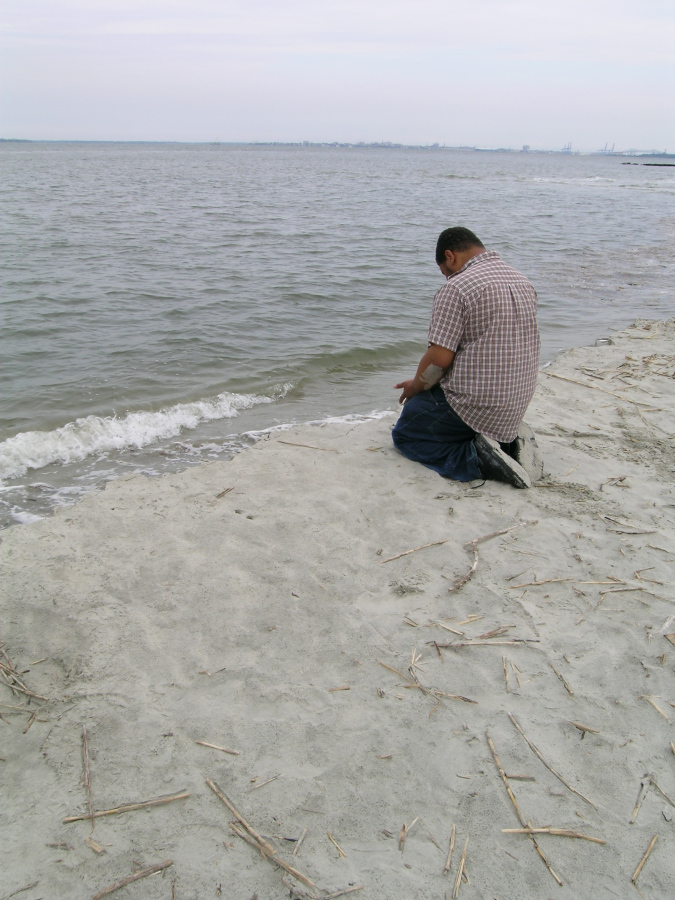
While your gall and nerve anonymously preserved for eternity online is cute, I thought you might want to be further disturbed not by the actions of the dead, but by those of the living:
Like remember when you took the form of the docent in Virginia who told me, “Look, you don’t have to go on about the history, just tell them you’re the cook and be done with it…”
Or remember when you waltzed in with a MAGA hat and told me “I know what it’s like to be persecuted like a slave. I’m an evangelical Christian in America. Its scary!” (More power to you for your faith, but that analogy? Or skewed perception? Or saying that nonsense to my face with the assumed confidence that I wouldn’t respond?)
My personal favorite was when I spilled some of the contents of a heavy pot of water as the light was dying and you all laughed and one of you said…and I could hear you…”This boy doesn’t know what he’s doing.”
“Boy.”
I was exhausted. I had been cooking over an open hearth for 7 hours. One enslaved cook in Martinique was thrown alive into an oven for burning a cake. How do we know? His mistress calmly showed his charred remains to her guest after the meal. Spilling or burning food could have meant my ass.
How about that time you asked me if I lived in that kitchen with the dirt floor. Or when you said I was “well fed” and had “nothing to complain about.” “This isnt sooo bad. White poor people had it just as bad if not worse.” I do so love it when folks like you ask me “What are you making me for dinner?”
In South Carolina there was that time four of you walked in grinning and salivating as you often do, and were all ready to be regaled of the good old days until a German tourist scratched your record. He said, “How do you feel as a Black American, dressing like your Ancestors and cooking and working this way?”
You started to frown.
I said, “Slavery was colloquial and discretionary, one story doesn’t tell all. But its important to remember that our Ancestors survived this. Survived slavery.”
He pushed me further. You gestured towards the door.
“How do people feel about slavery?”
My retort was fast. “How do you feel about the Shoah? How do you feel about the Holocaust?”
The German said, “The Holocaust was a terrible thing and never should have happened. We were children when Germany was coming out of the ashes. But it is a shame upon our nation.”
As the four of you turned to leave, I got in a good one: “That’s a phrase you will almost never hear some white Southerners say. “Slavery was a terrible thing and never should have happened.”
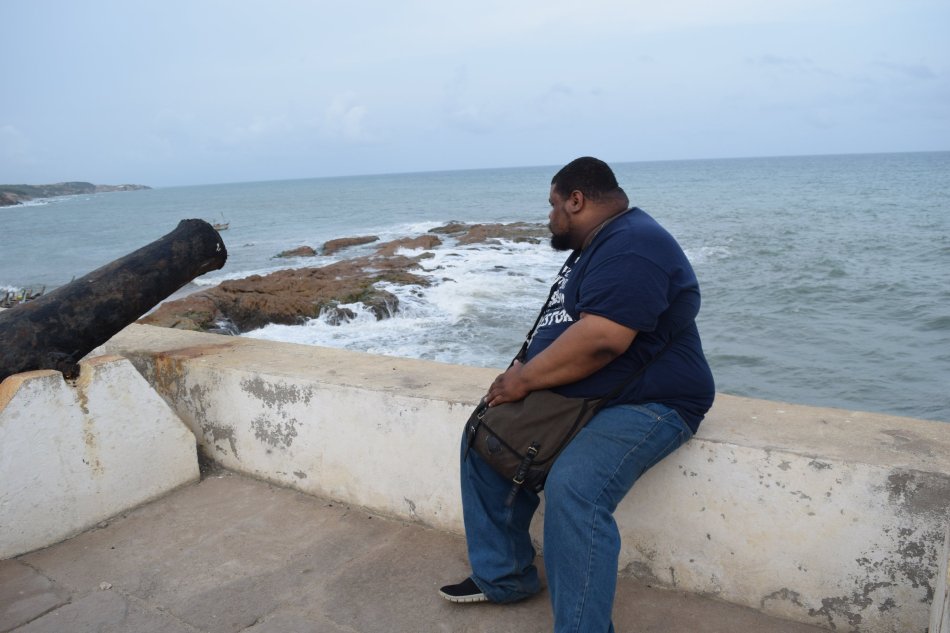
But…the South is not to be indicted on it’s own. Without Northern slave trade captains, merchants, mill owners, and even universities that had stock in the enslaved, the Southern economy could not have flourished. (And please miss me with “you sold your own people..” the corporate identity of Blackness was not a feature when African, Arab and European elites and merchants conspired during the time of the slave trades…you cant learn everything from the crossword section of StormFront…)
Furthermore your immigrant ancestors would never have had a land of opportunity to come to. Or a people to walk on as your folks climbed towards whiteness. The most valuable “commodity” in Antebellum America during the years of exponential growth was not wheat, corn, tobacco, rice or even cotton. The most important commodity of the mid 19th century in America, was the Black child, and behind the children, the body of the Black woman.
Dont get me wrong. This isnt about being anti-white or ignoring other people’s traumas. But if you do think I don’t like you because you identify as white that’s not it. I suspect what you might be doing—identifying with heathy slices of weaponized racial power, privilege, attainment and achievement obtained in a hierarchical exploitative American dream between two pieces of unexamined whiteness, I guess the plantation isn’t the ideal place for you to escape.

Facing my/our past has been my life’s journey. It’s also been at times devastating and painful. But reflection in no way equals one second in the lives of the enslaved women and men whose blood flows in my veins. I had the privilege of rediscovering my roots on a North Carolina plantation at a dinner we prepared for North Carolinisns of all backgrounds. Knowing that the enslaved people who once occupied those cabins could never have dreamed of that rainbow of people sitting together as equals in prayer, food and fellowship while my Asante and Mende roots were being uncovered after centuries of obfuscation was for me a holy moment.
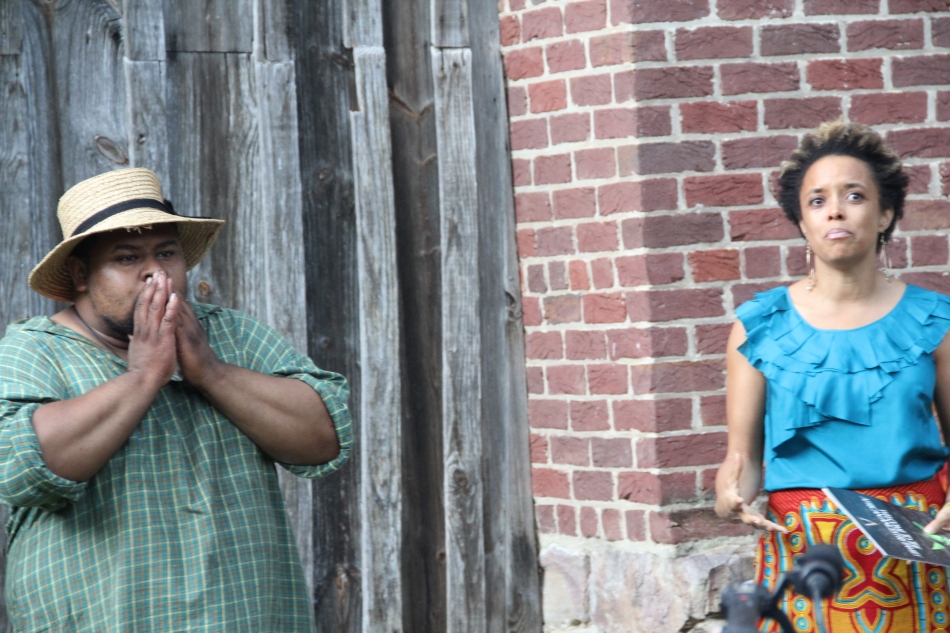
You miss out on magic like that when you shut down your soul. Going to what few plantations remain, your job is to go with respect and homage and light. You know, like I felt at the Tenement Museum and learned about the first American experience of those who passed through Ellis Island. Your job is to be thankful and grateful. Your job is to not just hear but listen. Your job is to know that Black lives mattered then just as they do now. Your job is to face the reality that hardships and hurt have been passed down from the American Downton Abbey, the American plantation.

Rape happened there..to the point where almost every African American with long roots here bears that evidence in their DNA. Theft of our culture. Forced assimilation. The breaking up of families…like all of us. Of course there was economic and legal exploitation and oppression, the effects of which have never been extricated from the American story.

But because enslavement was so damn fuzzy…we forget that those maudlin moments of blurred lines passed down by sentimental whites were purchased with pain. I tell my audiences that enslavement wasn’t always whips and chains; but it was the existential terror that at any moment 3/5ths could give way to its remainder, and unfortunately often did.
Guilt is not where to start. If you go back start with humility. Have some shame that NONE of us are truly taught this. Be like the working class white lady whose family I met in Louisiana who brought her young kids because she “wanted them to know the whole story, the story of American history is Black history.” Too bad she ain’t going viral. Wherever you are my cousin, I salute you.
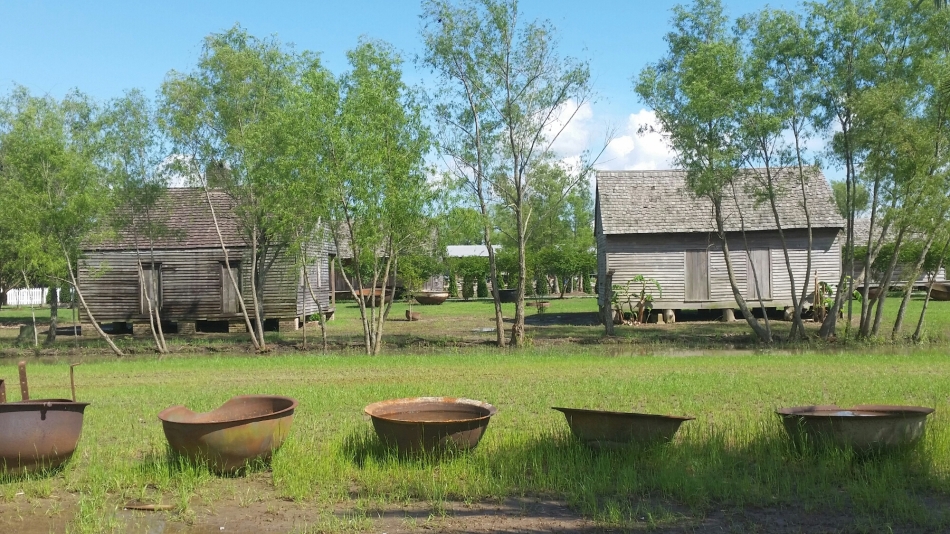
Right now we need people to exercise their compassion muscle over their dissatisfaction or disappointment. Right now we need people to see the parallels. Right now we need people to remember the insidious ways history repeats itself. Right now we need to be better humans to each other. Right now we need people to remember the righteous who sacrificed so we could tweet and leave awful online reviews.
Y’all come back now y’here?
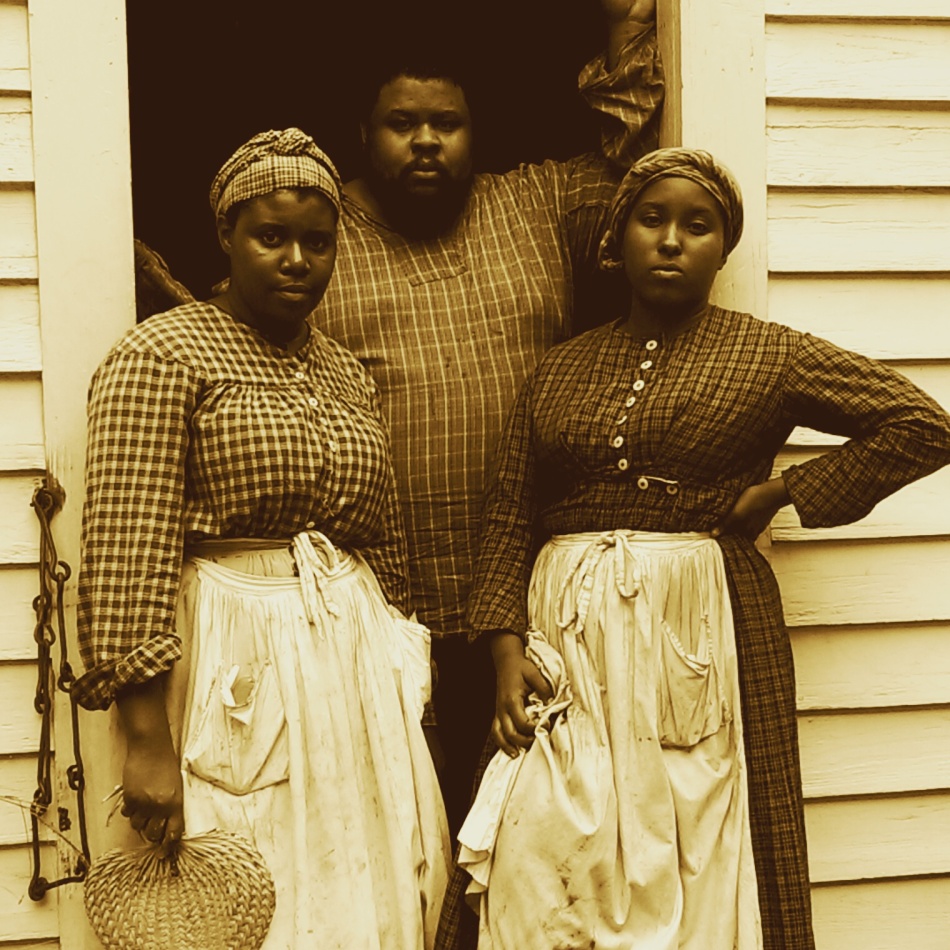

Mr. Twitty,
Thank you for a brilliantly written piece! I’m a native South Carolinian, and descendent of slave owners, and I want to scream out that slavery was an abomination, a horror, and never should have happened. It’s a sin that taints Southern and American culture right up to the current moment.
I had my DNA tested and found many cousins, relatives that I knew probably existed based on the acceptance and actual encouragement of raping enslaved women that was a part of plantation culture. And as with most white Southerners, there was a trace of African ancestry in my mother’s DNA when she had it tested. Someone in the distant past passed. Our family is working to find full story, but I don’t think it’s a unique one.
The work you’re doing is so important! I’m so glad to have found your writing via a friend on Facebook. Please continue. I can’t wait to buy and read your book.
LikeLiked by 2 people
Thank you family!
LikeLike
Ditto to the comment above, all of it: SC ancestry, DNA test results, feelings about our shared history of enslavement.
Keep telling it, Mr. Twitty!
LikeLike
Pingback: Great blog on plantation museums & race – Shaun's Space
Thank You Michael,
You are invaluable. I am anxious to read your book!
Amy Eimer
LikeLike
Such a profound and touching story of your family and what they went through during that horrible time in our country’s history.
LikeLike
Thank you for writing this. This is something that needs to be said and heard. I salute you for your work and your dedication to educating others about the whole story, and your story.
I grew up going to historic sites and learning about American history, however, there was a huge piece of that history missing. It was not until I was in my early 30s taking an online college course that I learned that Northerners owned enslaved persons as well.
I admire you for what you do and the journey you have taken to get to where you are. Continue to tell your ancestors’ stories. Continue making those white people uncomfortable by making them face the whole history.
LikeLike
Thank you with all my heart. My southern mother told us the stories of her youth of black nannies and help on the farm. She would add that those people’s history really wasn’t so bad. That not all slave owners were cruel. Even as a child I could not follow that logic and knew there were many lies and secrets under her statements. I have for a number of years been uncovering some facts through research and now DNA. I hate that my white ancestors could not have been better, braver, kinder and called slavery and all it represents despicable. No only should it have never happened but the injustices that followed and keeps on is still a disgrace. One fact I have discovered is my GGrandfather fathered many children by black women surrounding his farm. His responsibility to these women and children ended after he gave them a milk cow. I feel shame for his meanest and callous attitude towards others. However, this does make me want to be better and more compassionate. Knowledge does help us see clearly. Thank you again for your part in this.
LikeLiked by 1 person
I appreciate you 🙂 thank you for sharing your story
LikeLike
I am now going to put your book on my reading list. Thank you for doing the hard work of helping all of us confront our collective past as white Americans.
LikeLiked by 1 person
I feel honored
LikeLike
Thank you for writing this. Hard to read, sad and moving. What I don’t understand is what the tourists meant by saying they wanted to see a ‘real plantation’, and not learn about how people treated their slaves. How do they think plantations worked? They wouldn’t have existed without slaves!! No-one in Europe in the 19th century thought much about where their cotton and sugar came from……time we all learbt, and researched the history.
LikeLike
This was beautiful Michael. I, too, am ordering your book and think it important to visit a plantation with my teenaged, white son. I am embarrassed and shocked by this woman’s comments about being lectured to about slavery. I think we can safely say she needed a lecture and was right where she needed to be. Hopefully one day she recognizes that.
LikeLike
Thank you for this. The hard work, craft, and thoughtfulness shine out in every sentence.
LikeLike
I appreciate that Michael!
LikeLike
Very enlightening article. Makes a person stop and think.
LikeLike
Appreciated Janey!
LikeLike
Mr Twitty, Thank you. I am a white Jewish woman who has never been to a plantation because I was afraid they would pretend it was ok to enslave people and treat them as mere property so they could have that “genteel southern
lifestyle”. I am sure the big house and grounds are beautiful, but if you don’t see the shacks and acknowledge and honor the sacrifices of the people who lived there; then you haven’t really been to the plantation have you?
LikeLike
Mishpocheh!
LikeLike
This was amazing. I will be ordering that book for sure.
LikeLike
This was very well written, sir. I appreciate your dedication to the unvarnished truth.
LikeLike
I appreciate your writing so much. I had the “opportunity” to go to Stone Mountain nearly 20 years ago and was both appalled at what felt to me, a liberal West Coaster, as an homage to the plantation years. Yes, there was some education there for those who wanted to think about the meaning of the slave quarters, hot little kitchens, etc., but it wasn’t called out or enlightened in any way.
Thank you for this – I’m definitely finding and buying your book.
LikeLike
Blessings Belinda!
LikeLike
What a honor you are paying to your ancestors and what a gift you give to us. I’m in awe of your work. Thank you.
LikeLike
I needed that.
LikeLike
I feel grateful to you for writing this piece and I look forward to reading your book. It is the duty of every citizen to confront the past and the horrible things that have been committed in an effort to build a better future. We can’t move forward without looking back. Your journey sounds like a labour of love to your ancestor’s memories. I hope one day that I will have an opportunity to hear your presentation and thank you in person for the work that you do.
LikeLike
Hello. Thank you for this wonderful article so eloquent so poignant. I visited a plantation a few years ago and the guide kept avoiding the word « slave » and « black ». She would use the word help or servant, implying they were compensated for the job they did. When I called her up in it, in front of 20 people she did not apreciate it and I was at the receiving end of a Southern « mind your own business » with a smile! This white Canadian just could not let this pass without commenting. I was politely asked to refrain from asking questions untill the end of the tour!! It was eye opening. Canada has a problem with it’s dealing with aboriginals and not talking about it does not make it go away.
Thank you
LikeLike
Geez!!! Naw. You did right.
LikeLike
Thank you so much for this eloquent post. You are a treasure.
LikeLike
THANK YOU for doing this work and for putting up with people who are devoid of any sense of shame. This is such a powerful piece. As a white American, I am dismayed when I have visited southern plantation homes and do not hear the story of the slaves who worked there against their will. It’s absurd. I usually end up asking questions and having them glossed over in a very sanitized way. Like the ignorant woman complaining about not wanting to hear about reality, my ancestors were Italian immigrants to the north and when I was younger, I had the same feeling of lack of culpability. Now that I’m educated, I realize every American—and in particular white Americans—has benefitted from the human cost of slavery and at a very very minimum should recognize this and acknowledge the pain, struggle, and injustice of this scar on our history. Like many atrocities that are hard to understand or are unpleasant—it’s easier to look away and distance ourselves.. but that is how good people allow bad things to happen…anyway, I’m preaching to the choir, but you inspired feelings in me and I appreciate your candor. Your work sounds fascinating and I am going to dig back into your archives to discover more.
LikeLike
We could be cousins! I’m a tiny bit Italian!
LikeLike
Hey, cuz! 🙂
LikeLike
Famiglia!
LikeLike
Definitely sharing this. Your willingness to stand for truth has also been shared among many of my friends via the article on the angry white lady.
A couple years ago I found a bunch of slave narrative books on tape and listened to not only the terror and cruelty that was inflicted but also the ingenuity that the African American people exercised in dealing this this. This one guy said the owners were so spiteful they wouldn’t give the slaves any meat but he managed to find a way to catch a lot of fish so they could have fish fries. He was always outwitting them. What is sadder is another testified that cruel slave masters became way worse after they ‘got religion’.
Will recommend your book on the history of ancestral cuisine as well. If I ever go South on a tour I want to go to a plantation like yours that tells the unvarnished truth.
LikeLike
Thanks for all your words, Michael — here, in “The Cooking Gene,” on socials, in all you do. Thanks for your profound eloquence, your open-heartedness, and your optimism (or so it seems to me) that propels you again and again to ask all of us to look clearly and squarely at the truth of the past. It inspires and reminds (me at least) to respond with: it was wrong; it was immoral; we’re not rid of it yet; and above all, how do we do better everyday, with big and small actions, at every damn turn. Also, making a trip to Whitney Plantation (just a tad south and west for me, as I’m in Nashville) is going to happen.
So again, simply thank you.
LikeLike
Wow. Yep, we were never thought this in our History books. But of course look who has written history. As you do not see Women’s history in our History books either.
LikeLike
We desperately need greater knowledge of history from the viewpoint of women by women.
LikeLiked by 1 person
Mr Michael,
What struck me here was your beauty: your luscious writing, your work (as opposed to just your job), your love for your ancestors, your truth-telling and your resilience! I am in awe of how you took the arrogant whiteness and created a response that contained so much love. I read all the responses and marveled at how you took time to give personal responses to so many.
As a white person I NEVER EXPECT any black or brown person to trust me or to even treat me with kindness. I am continually humbled and amazed at how much many black and brown folk, both those I know personally and those like you, extend their hands toward me even though I’ll never be able to repay the debt I owe you/them and their ancestors.
As I work through/on/with whiteness and systemic white supremacy I have this vision of a Great Cloud of Witnesses, the ancestors and all the BIPOC in my life (both living and dead) who have taught/given me so much. I am accountable to them at all times and in all places. I just added Michael Twitty to that cloud.
LikeLiked by 2 people
Ase!
LikeLike
Mr. Twitty –
Both your command of language and writing, and the raw content of this article have left me sitting here on the couch sort of stunned. I’ve learned more from this one article than I can even put into words. I’m so thankful for this.
LikeLike
Going to the Whitney Plantation was one the most humbling and meaningful times in my life. Your words to the white woman are right on target. Please keep doing your work to honor your ancestors.
LikeLike
They do an amazing job. Honored to have cooked there
LikeLike
Wow. What a great read. I think about this kind of stuff a lot, and you have given me even more to think about. I particularly liked your story about the German tourist. I’ll get your book- the topic and approach sound fascinating, and from your article at least I find your writing style very engaging. Continue speaking truth to power, and best of luck to you.
LikeLike
Thank you Marc!
LikeLike
Beautiful writing, sir.
For 26 years I’ve worked for the National Park Service, with about a third of them interpreting early Civil War. I grew weary of the politics of it and of the “vacation brain” many visitors had. On a daily basis we had to hear enslavement had nothing to do with the war, while they were surrounded by fortifications and other structures built by enslaved men, as well as tangible reminders of a Freedman’s Camp.
In 2017 I moved into a different direction in my career. Many days I feel badly about not being more successful in conveying the truth, but I take solace in that, perhaps, I reached some hearts and minds.
Keep the faith, and keep up the good work.
LikeLike
I will!
LikeLike
Pingback: Bookmarks for August 11th from 08:38 to 21:58 : Extenuating Circumstances
Thank you for all you’ve written. In this post, in “The Cooking Gene,” on social accounts, any and everywhere.
LikeLike
Wow. I’m envying the people who go tour now — my mom dragged us to see Jefferson’s home when we were 18 and the visit to the slave quarters was perfunctory; “this is it” and off to look at rich people’s things. It took years of school — grad school — before I felt I had any idea what it was like, and that was all from books, not the kind of living history you and others clearly provide. I’m white, but from a mixed ethnicity familiy and KNOW every member of the family has a different story from their past, and I want all their stories, if only selfishly, to fit us together better. It hasn’t changed as much as it should; when in American Public Address (textual history) I assigned Gone with the Wind and The Wind Done Gone, people were shocked they’d never even wondered what Mammy thought. I’ve heard about your cookbook and shall blow Social Security money on it someday — keep writing. I’m so glad you like Kindred. I heard Butler read a piece when it was just being published and became a huge fan — she and Delazny and LeGuin and others really changed the face of SF for me. Thanks for this piece.
LikeLiked by 1 person
Thank you for this. We white people need to hear it again, and again, and again. And, as you said, we need to _listen_. Octavia Butler’s book “Kindred” changed my life.
LikeLike
One of my favorite books
LikeLike
You writing is so beautiful. This piece really touched me and brought tears to my eyes. As a white woman growing up with both both parents who had deep roots in the south, I was blessed to grow up in Kent Ohio. My parents taught me to be kind and respectful to everyone.
Then as it is today our education system fails when teaching about slavery. My curiosity as a child was peeked with the advent of “Roots” I was encouraged to explore more about it. Many trips to the library and books checked out still left so many questions unanswered.
Now thanks to men and women like you my questions are finally truthfully being answered. I’m shocked everyday by the ignorance I find in people I meet. So many believe that the southern plantations were wonderful places like in “Gone With the Wind” we’ll never make progress until they’re bubbles are popped!
Plan to buy your book as soon as I get $. Can’t wait to read it.
Love and light
LikeLiked by 1 person
This horror should have never happened. I used to be one of the many white Americans who said, “But my family came after the Civil War and the few that were here lived up North.” Then, when doing research for my Daughter of the American Revolution application, I found a reference to an ancestor who died deeply in debt. The generation before we were very wealthy living in New Amsterdam. The record indicated that his widow sold his two slaves to pay his debts. I was horrified. It made me rethink many things and my responsibilities towards Black Americans. I now support reparations and I think that more education is needed about slavery in the North. This history is important and the whitewashing of this original sin cannot be tolerated. We need to target textbooks in the South that gloss over and sugarcoat the atrocities of Slavery. We also need to make sure Northern textbooks reflect that it wasn’t always the South’s problem. I am grateful that my son, of his own making, has a good heart and does his best with regards to race. I am truly sorry that you are treated this way in 2019. It’s disgusting that these people are so emboldened by their hate and sense of entitlement that they are so rude to you. Perhaps someday, I pray, they will have to face themselves and their own sins in the mirror.
LikeLiked by 1 person
Thanks. Very moving and desperately needed perspective. Keep up the great work.
LikeLike
Slavery and enslavement of anyone is unacceptable, was and is an abomination.
I applaud you and the reenactment honoring your and all ancestors of slavery.
With that being said, in this article, you touch on but dismiss the important part others of your ancestry who played a major part in the enslavement of the blacks from Africa. And nothing of the Native population of the Americas that were enslaved.
I have visited many 18th & 19th century locations where slaves played major roles in daily life of the location. I have the greatest respect for those enslaved children, women, and men whose labor, sweat, and blood not only helped build but also run the homes, towns, cities, and states they were forced to serve.
But you do a dissatisfaction to those ancestors when your personal hatred is so prominent in your writing, and maybe your interpretation. I may be an oddity, but yes I want to hear of the hardships and mistreatment associated with slavery, it’s a stark reminder as to why we should never ever be allowed to treat one group or race to the horrors of forced servitude.
LikeLike
What personal hatred? And have you read my book? I touch on all the issues you raise. And then some.
It’s funny. You know you’re good when not everyone likes you. I seem to remember when Black folks told me I talked too much about my connections to white people by culture and blood. Or that I was letting people off the hook.
When you say “blacks from Africa,” you are confusing contemporary terminology with historical realities. This isn’t about being dismissive. This is about focusing on and interrogating dismissive and prejudiced attitudes brought by visitors not about historical causality. By that token, empathy for atrocities is based on how much we feel people are “responsible” for their pain and that metric only seems to be applied to us as a way of ameliorating guilt.
I respond to your comment because I think that we could agree but the character assessment on your part is, a bit much of a reach for one essay. Thanks.
LikeLiked by 3 people
All you did was try unsuccessfully to project your own anti-Black biases onto the author. Cowardly move.
LikeLike
Thank you, Michael – for ALL of your work, every iota of it! Teach this master class!
LikeLike
You’re welcome my sister! I see you 🙂
LikeLike
Loved reading this. History books DON’T teach the truth about much of anything. My mother’s family was from South Carolina. I don’t know all our history but know they were dirt poor. I love learning TRUE history. Thank you. History is doomed to repeat itself if we don’t learn from our past.
LikeLike
We are one Southern family.
LikeLike
Wow! What a friendly response to an all too frequently heard complaint from Dixie tourists. They want to feel like Scarlett O’Hara, and then they start to feel uncomfortable when they see the slave quarters. Boo hoo, Karen!
I applaud you for dedicating your life to telling the story of your ancestors in an authentic way. I look forward to reading your book and spreading the word about giving Black American culture its due respect.
LikeLiked by 1 person
Because Black American culture IS American culture
LikeLike
Thank you so much for your brilliantly articulated experiences here. The richness and complexity of what you’re describing were so densely layered that it took me a couple of days of reading and rereading to absorb and FEEL myself. I’m purchasing your book as authenticity is cleansing and, ultimately, nourishing to my soul. I’m reminded of a book by Peter Matthiessen called “In Paradise” which deals with related ideas and the awful and inevitable human responses as a group visits a WWII death camp. Thank you, again, for your integrity and authenticy in sharing your journey.
LikeLike
I need that book!!
LikeLike
Michael,
My adult daughter (free lance writer and creator of Matriarchitects) invited me to join her in visiting the Whitney Plantation. I was reluctant at first because previous visits to Plantations left me very dissatisfied with a strong sense of unease that I was not hearing the full story but rather the story of the privileged and rich. This tour she said was different; she was so right. In the intense heat and humidity of Southern Louisiana in August we were journeyed through the history of that land as told in the voices of slaves who lived, suffered and somehow survived that torturous era. The sculptures of slave children, the image and words of a slave (Pauline Johnson) on my ticket, the memorial walls with names, dates and some vignettes, and finally the heads on spikes commemorating the 1811 Slave Rebellion are seared into my psyche. I left drenched in sweat but soul satisfied that I had heard more than ever before the true (his)story of that place and time. Our white woman tour guide did a credible job but as we passed another tour led by a black man I wondered how his tour might be different and how I would have preferred his version. Thanks, Michael for your courageous work in honoring your ancestors and exposing the story all Americans in particular need to hear in the face of the racism and gun violence against blacks and immigrants. The frightened white terrorists trying desperately to eliminate those whose very presence makes them feel insecure will not win this war nor will our racist narcissistic president and his cowardly political cronies. No,
The ground swell and the ark of history is moving us toward justice, love and peace and thank you for your leadership on that journey.
LikeLiked by 1 person
Wow I am really honored by your response.
LikeLike
Michael,
I am the fidgety midwesterner that on a “short” tour of your kitchen would end up in there for ages absorbing your every word. Possibly asking for yet more info or to see a technique again. I’m the one that would want to read any antique cooking vessel like a history book. Or I would sit quietly and listen and listen and listen. Simply encouraging you to keep talking.
LikeLiked by 1 person
Big hugs!
LikeLike
If your culinary skills are remotely as proficient as your narrative abilities, a meal prepared by your hands must be sublime. Thank you for providing your perspective and experiences as a response/challenge to the [willfully?] unenlightened.
LikeLiked by 1 person
A facebook friend of mine shared this story, and in return, I also shared it as a must read. I feel humble, and ashamed, not to have realized there were educational places, as yours, that exist. I have been in SC twice, to visit my son who was stationed there, unfortunately, the history of SC never entered my mind. Though my son is no longer there, I now want to return to SC. I thoroughly enjoyed reading what you wrote, and now plan on educating myself. Thank you for sharing what you do, and what it means. Everyone should care.
LikeLike
To my friend, thank you so much for all you do to expose people to our history. It is an honor to know you and walk in your footsteps. I pray that my reach would be as wide as yours. You inspire me to continue my work and to keep going when I feel discouraged. Thank you once again my friend. Kevin
LikeLike
I appreciate you!
LikeLike
I deeply appreciated your book and have spent this past year giving it to everyone I know for their birthday. I am grateful to you for writing it. I very much hope I can see you in person one day.
As a white southerner, I know I bear a special responsibility to deromanticize the stories of antebellum south and the lost cause. So many of my fellow southerners say they love the south but how can they love something if they aren’t willing to really know it? To many want to pretend the past did not happen. But, if we want to find unity, we have to find justice. We can’t have redemption until we have a reckoning.
LikeLiked by 1 person
You’re doing the work. We have so much work to do in our communities to heal and solve mutual problems together. We have to.
LikeLike
Mr.Twitty,
Thank you for your eloquent piece in response to your experience. I’m sorry you have to even speak to it, but I am grateful you are willing to. This right here is everything: “Guilt is not where to start. If you go back start with humility. Have some shame that NONE of us are truly taught this.”
As a high school teacher and mother of three, I appreciate this. I was on a family vacation in Savannah two years ago, just after the Telfair received a grant to work on the space at the Owens-Thomas House that was once the slave quarters. Over the next months I took to researching how historic homes are presenting these spaces for visitors. The Davenport House is doing good work, too. I take my children to these historic homes to learn what I didn’t know before – how the enslaved adults and children in urban environments kept these homes running and the economy thriving. And I was struck by how much I learned about my own northern state of NJ.
I originally wanted to write a book for young people that encapsulates what I’ve learned and to tell the story of the young enslaved. However, the more I discover, the more I want to wait. I am still looking for the best way to enter the story, because as a white woman I still have plenty to learn. My education includes reading your book, which I will be purchasing ASAP. Please continue your work with such passion!
Gratefully,
Taryn Ashe
LikeLike
Thanks for this beautiful piece. I wish I could say that I am shocked that in 2019 you face these sorts of reactions, but I am not at all surprised. Still, your voice – and those of your ancestors you are so diligently carrying and sharing – are so important for us to hear so we can be cognizant of the horrors of the past and the strength that carried Africans brought here as slaves, and their descendants, forward in spite of a society engineered against them. You are doing good, important, holy work. Good look in the future, sir! I spend a lot of time studying the colonization of Gaelic peoples, and specifically of my own ancestors exiled here by the English from Scotland and driven from Ireland by famine, and there is a tendency among some to sort of minimize the atrocity of slavery here because “my ancestors had it bad too.” For whatever reason, they seem incapable of recognizing that, as you said in your piece, slavery made it possible of there to be a place here for others to be exiled and driven TO, and that “whiteness” was sold to them to placate them with privilege here. It all goes back to the African slave trade and ethnic cleansing of indigenous peoples as the underwriting for the chance at freedom for others, and that was wrong. Anyway, as I said, I appreciate your piece and your important work; I hope to try some of your recipes one day.
LikeLiked by 1 person
Why are you shocked? You realize your being able to feel shock over this is privilege, right?
LikeLike
This is a very gentle re-centering of the story. You have a tremendous amount of grace, which I respect greatly. Thank you for sharing your work, and for keeping your ancestors’ stories alive. They ARE our history, and we all need to know them. I, too, am a descendent of slave-owners, and while I’ve never been “rich,” I am painfully aware that my relative ease and comfort was won at the expense of generations of people of color. For that, I am humbled and ashamed. But it is the truth I’m passing along to my children, without the whitewash I received about how “well” our ancestors treated their “help.” Slavery is an abomination in our country’s history, and we need to face it head on, and work harder to dismantle the present-day inequities that exist in its wake.
LikeLiked by 1 person
Thank you for this. Powerful as hell. A colleague who had the honor of working with you in the kitchen of the commanding officer’s house at Fort Snelling last summer and watching him interpret told me about this piece. She also told me about your book, which I’m going to buy and then pass on to someone else. Love and peace to you.
LikeLike
Peace and love back and many thanks!
LikeLike
Dear Mr. Twitty, Thank you for taking the time to write this powerful essay. I am going to share it with my university students this fall, in my seminar on The Visual Culture of Heritage and Identity, when we study Whitney Plantation.
LikeLike
I am so tired of the race issue Black people whining, white people whining. Without the benefit of really thinking this through, I find that I am just exhausted by trying to figure out where to land on this. As a person ‘of Irish Descent’, I have my own history and background of abuse and horror. Remember ‘No blacks, no dogs, no Irish;?
It often seems like the squeaky wheel gets the grease. A lot.. Look at the history of the Irish Famine. People dying on the roads. British landowners happy to pay to have their ‘peasants’ loaded onto coffin ships.
LikeLike